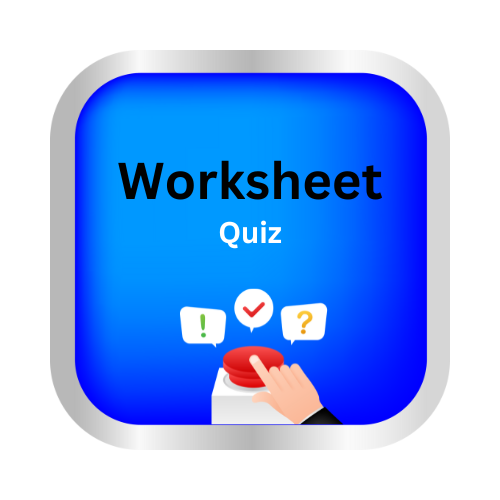Write multiplication sentences for equal groups
key notes :
What are Equal Groups? 🤔
- Equal groups are groups that have the same number of items.
- Example: 3 baskets 🍎🍎🍎, each with 4 apples 🍏.
Multiplication Shows Equal Groups ➗✖️
- Instead of adding the same number repeatedly, we can use multiplication.
- Example: 4 + 4 + 4 = 3 × 4 ✅
- 3 groups, 4 items in each group.
Parts of a Multiplication Sentence ✏️
Factor 1: Number of groups 🧺
Factor 2: Number of items in each group 🍎
Product: Total number of items 🎯
Example: 3 × 4 = 12
- 3 groups × 4 items = 12 items
Steps to Write a Multiplication Sentence 📝
- Count the number of equal groups 🧮
- Count items in one group 🍪
- Write it as groups × items in each group = total
- Solve to find the total 🎉
Fun Tip: 🔥
Repeated Addition → Multiplication
- Example: 5 + 5 + 5 + 5 = 4 × 5
Practice Example: 🌟
- There are 6 baskets, each has 3 oranges 🍊.
- Multiplication sentence: 6 × 3 = 18 oranges
Visuals Help! 🖍️
Draw groups and items to see multiplication in action.
Example:
🧺🧺🧺
🍎🍎🍎 🍎🍎🍎 🍎🍎🍎
→ 3 × 3 = 9
Learn with an example
Complete the multiplication number sentence that describes the model.

___ × 2 = 4
The model has 2 groups of dots.
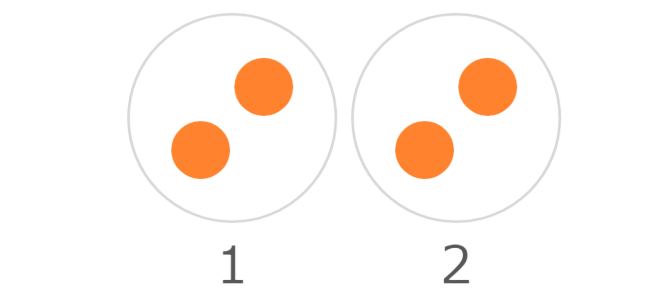
There are 2 dots in each group.

There are 2 groups of 2 dots. This means there are 2 × 2 dots.
Find the total number of dots.
Count by 2s: 2, 4
There are 4 dots in all.
The multiplication number sentence that describes the model is:

Complete the multiplication number sentence that describes the model.
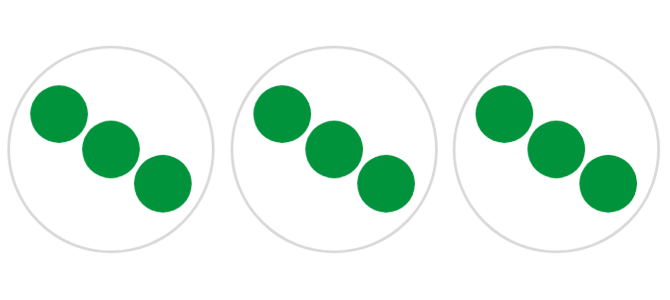
____ × 3 = 9
The model has 3 groups of dots.
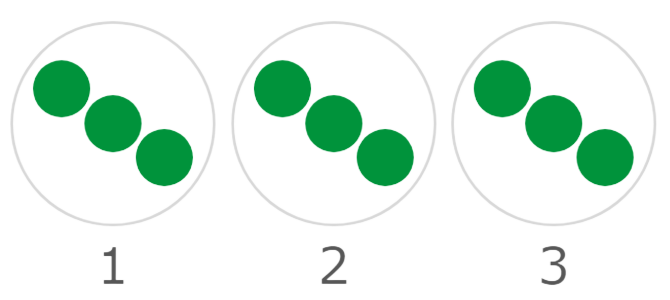
There are 3 dots in each group.
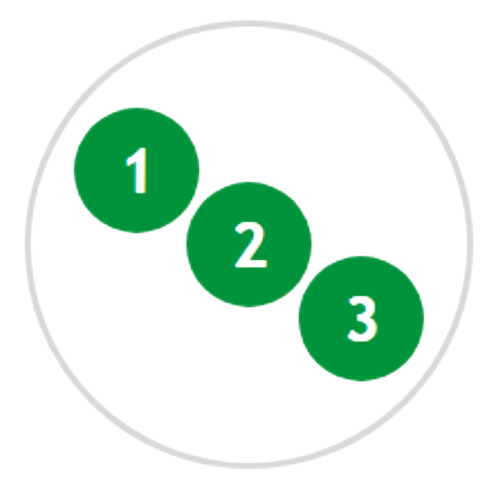
There are 3 groups of 3 dots. This means there are 3 × 3 dots.
Find the total number of dots.
Use addition: 3 + 3 + 3 = 9
There are 9 dots in all.
The multiplication number sentence that describes the model is:
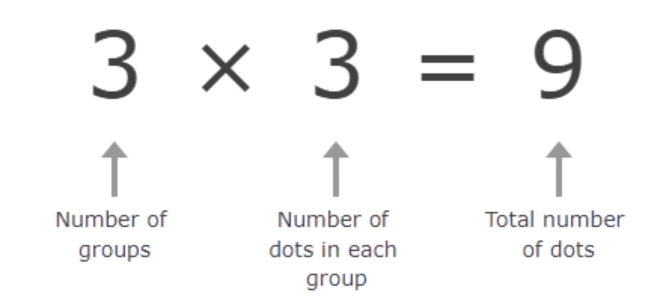
Let’s practice!

